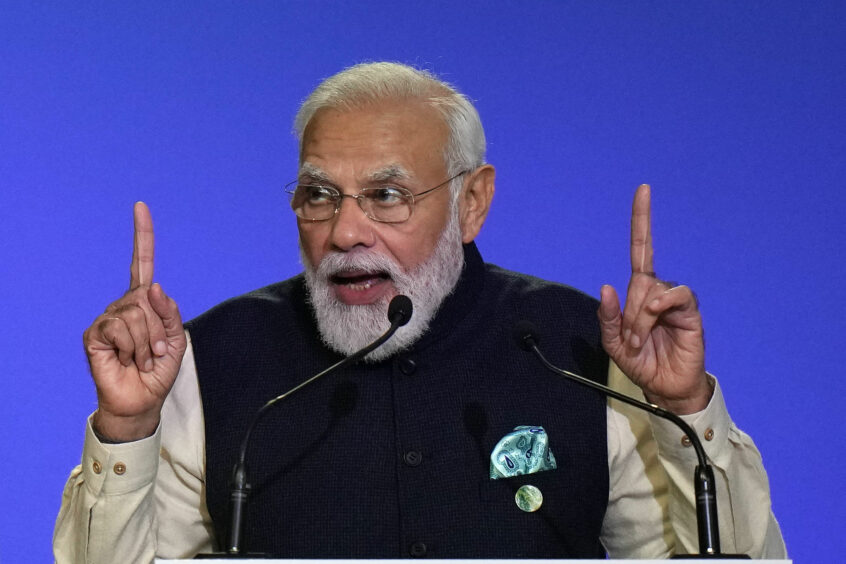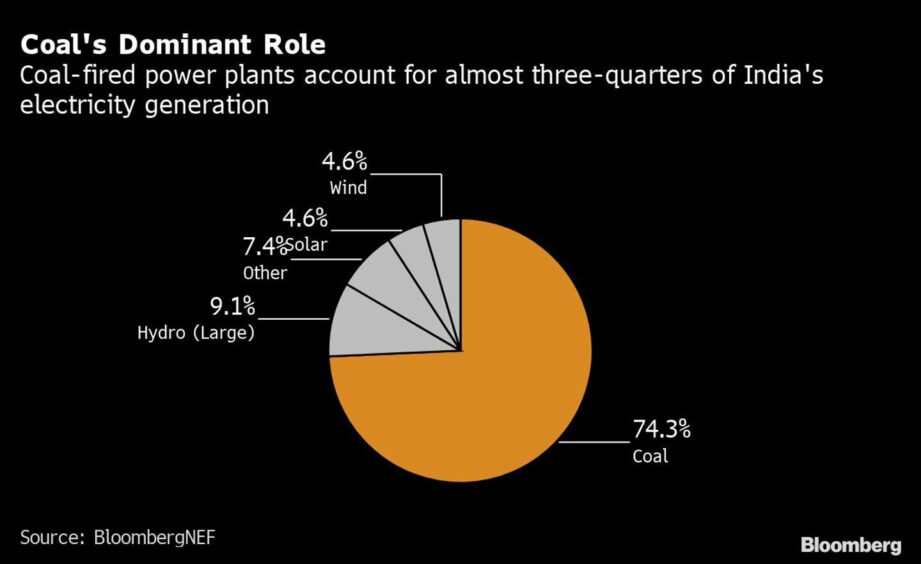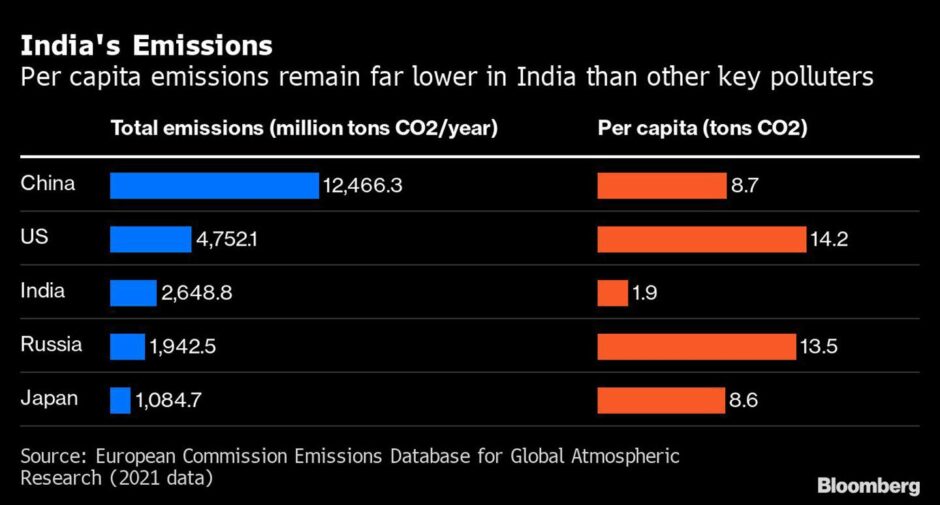
India, the third-largest greenhouse gas emitter, is planning for an expansion of its oil and gas sectors even as it aims to hit net-zero by 2070.
The nation intends to increase oil refining volumes to 450 million tons a year by the end of decade, from about 250 million tons, and will also boost liquefied natural gas (LNG) import capacity, Prime Minister Narendra Modi said Monday.
“Energy is a big factor in fulfilling the aspirations of Indians,” Modi said, opening a three-day energy forum in Bengaluru that’ll draw 30,000 delegates, including officials and executives from Saudi Arabia, Russia, the US and China. “From industries to offices, factories to homes, India’s energy demand continues to rise.”
India currently holds the G20 presidency and intends to keep a focus on energy security and access to electricity in the developing world alongside efforts to curb greenhouse gas emissions. The nation last week defended its continued reliance on coal, pointing to moves by some European nations last year to lift consumption of the fuel as they shunned Russian gas.
Natural gas should account for 15% of India’s electricity generation by 2030 from about 6% now, while the country’s share of global oil demand will ultimately more than double to 11%, Modi told the conference.

Even so, India will also aim to increase the share of non-fossil fuels in its power mix to 50% by the end of the decade, with a focus on strengthening local manufacturing capacity in solar, batteries and green hydrogen.
Investments in green hydrogen could potentially total as much as 1 trillion rupees ($12.1 billion), and production could be 5 million tons by 2030. The fuel will be used to replace 25% of so-called grey hydrogen, created using natural gas or methane, within 5 years, Modi said.
The government is already in talks with oil refineries and fertiliser plants to discuss how they could also adopt the new fuel.
“India’s commitment to green energy is visible to the world,” Modi said. “There is a mass movement in energy transition today. This is happening by rapid adoption of renewable energy.”
India has faced criticism over the slow pace of its climate action. While 350 billion rupees was allocated in a federal budget last week for energy transition projects, the cost of hitting Modi’s net-zero target could top $10 trillion, the Council on Energy, Environment and Water calculated in a report last year.

Modi was scheduled to hold talks at the Bengaluru event with key energy sector executives as India seeks further investments in refineries, petrochemical plants and LNG terminals, along with the development of its clean energy sector.
India will launch an international biofuels alliance with nations including the US and Brazil to promote use of the lower-emissions energy source. Modi also offered backing to a new initiative to commercialise solar cooking stoves, a move aimed at curbing the burning of biomass for food preparation.
Recommended for you
